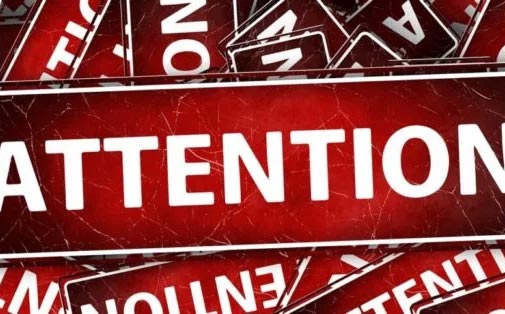As we wind down towards the end of Mental Health Awareness Month, we want to be sure to help people do what’s perhaps most important in this ongoing and growing struggle: help others. While mental health problems are a disease like any other medical challenge, they can be more difficult to spot given that most lack any outward physical symptoms. That can make mental health warning signs hard to spot, so below we’re going to describe five of them that are relatively common.
If you realize that either you or someone you love is exhibiting any of these mental health warning signs, one of the first things you should do is contact our team at SoCal Empowered. We’re here to listen to your situation and to help you figure out what to do next to protect yourself or your loved one. Don’t wait, either, as like any other disease, the earlier the intervention in mental health matters, the better the chance for a positive result.
If you realize that either you or someone you love is exhibiting any of these mental health warning signs, one of the first things you should do is contact our team at SoCal Empowered. We’re here to listen to your situation and to help you figure out what to do next to protect yourself or your loved one.
1. Changes In Behavior, Moods or Overall Spirits
We know ourselves, and we know the people we love very well. We generally understand their demeanor, how they react to things and how their minds and hearts work. That’s also why we tend to notice when something seems “off” with someone we care about, as it’s noticeable even if it’s subtle.
Therefore, if you notice changes in a person close to you, pay attention. Yes, everyone can have a bad day or a bad week, but if these changes – even if this person seems suddenly euphoric – persist, then you may need to decide how to help before things get worse. Doing so could make all the difference.
2. Changes in Sleeping Patterns
One of the many ways in which we get to know people is in terms of how they sleep. If you have children or a spouse, you know whether or not they tend to be light or heavy sleepers. You know whether or not they like/tend to go to bed early or late and get up early or later in the morning. Everyone from the American Sleep Association to everyday people understands at different levels how important a sleep routine is for physical and mental health.
That also means that you will likely soon notice a change in a person’s sleep routine. One of the more common mental health warning signs is this type of change, and it doesn’t necessarily mean someone stops sleeping. It could mean someone sleeps much more or they sleep at different times. This also means that it’s time for you to pay attention to that person’s mental state.
3. Changes in Diet/Appetite
Throughout the course of our lifetimes, we all undergo dietary changes, whether they are voluntary or not. As we get older, we tend to try to eat less and healthier, and some of us are even prone to one strict diet or another. However, in general, most people tend to fall into a dietary routine that, whether or not it’s optimal for their physical health, is generally understood by others.
That’s why one of the more straightforward mental health warning signs is when someone suddenly and rapidly changes his or her eating habits. Once again, this is a lot like the sleeping changes above in that someone doesn’t necessarily need to stop eating for one to worry. Instead, some people struggling with mental health will start eating a lot more, while others will eat different types of foods or avoid others altogether without providing much of an explanation.
4. Changes in Overall Energy Levels
Along the same lines, we all have days where we are seemingly filled with energy and others where every task or activity, no matter how small, seems like a monumental struggle. There’s nothing necessarily problematic with regards to that fluctuation, and in itself that doesn’t rise to the level of being one of the common mental health warning signs. As is becoming a theme with our discussion, it’s the change in the overall energy levels that warrants scrutiny.
For instance, if someone is generally very high-energy and upbeat, and suddenly or at least quickly that person begins to exhibit traits of someone who is on the opposite end of the spectrum, that could be a valid and major concern for loved ones. Energy levels can fluctuate for a number of reasons, but you need to trust your instincts when you notice a marked change.
5. Changes in Interest Levels
One of the ways in which our personalities are displayed is by way of the activities that we enjoy and talk about with others. Some people love to go fishing, while others enjoy painting, playing cards or whatever else that gives them a boost of positive energy. As stated more than once already, we know our loved ones very well. We understand what makes them tick, and we expect their interests to continue.
That’s why people may consider a loss of interest in these types of activities as one of the potential mental health warning signs that requires attention and perhaps action. If your loved one suddenly stops going to that weekly lunch with friends without any explanation, it could indicate a much deeper problem.
How SoCal Empowered Can Help
Unfortunately, recognizing mental health warning signs can be difficult for those who are not trained professionals. This is not like discovering a rash or a bruise or redness on the skin, but instead it involves recognizing subtle symptoms that may or may not be symptoms at all.
The bottom line? Trust your instincts. If you notice that something is wrong, dig a bit deeper. If you are wondering what you should do to help, click this link for a quick overview of some suggestions. If you’re convinced that your loved one is facing a serious situation, then you need to contact us as soon as possible. We’ll steer you in the right direction, and if a stay with us is advisable, then we’ll even deal directly with your insurance company so you know what you’re getting into before making any commitments. Just do somethingif you see any potential problems. It could make all the difference in the world.




